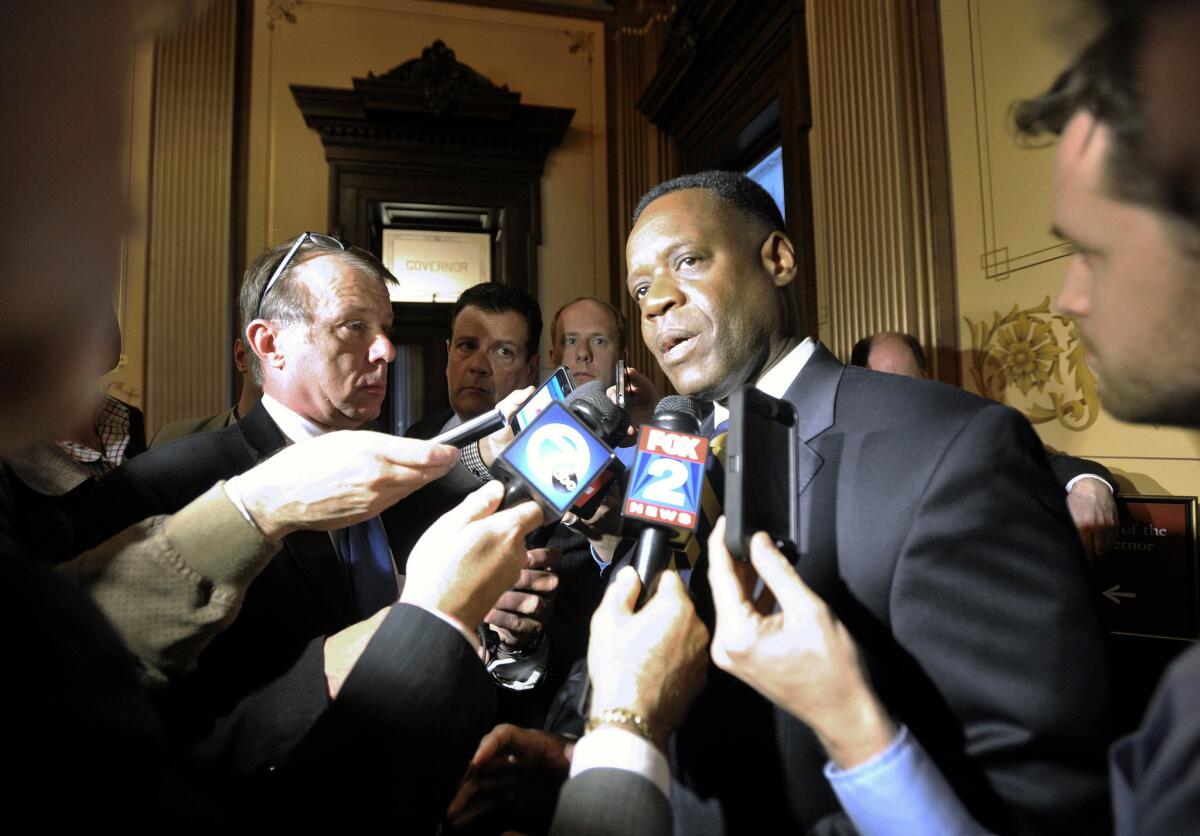What’s next for Detroit as creditors gear up for bankruptcy plan vote?

Three months after Detroit filed its initial plan to emerge from bankruptcy, a federal judge has cleared the way for creditors to vote on a much-amended blueprint to restructure the city’s $18-billion debt. The next steps are complicated and hinge on a variety of factors that are untested in what is the largest-ever U.S. municipal bankruptcy.
“Everything in regards to this is a new experience,” said Doug Bernstein, a Detroit-area bankruptcy attorney at Plunkett Cooney. “There is very little precedent when it comes to a municipal bankruptcy.”
Bernstein helped explain what happens next in Detroit’s bankruptcy proceedings.
Q: What can Detroiters expect next?
Detroit will mail ballots by May 12 to all creditors, including current city employees and retirees. Ballots will include a “plain language insert” and CD-ROM for city employees and retirees that explains the plan. The insert warns the employees and pensioners that their pension benefits may be reduced, but that “you cannot avoid a reduction in your pension benefits by refusing to vote.” Those who receive the ballot will be asked to check one of two boxes, “ACCEPT the Plan,” or “REJECT the Plan.” Ballots must be returned by July 11 to the Balloting Agent, Kurtzman Carson Consultants, which is in El Segundo.
Q: What terms are current and former employees being offered?
Pensions for civilian retirees would be cut by 4.5%, and their cost-of-living adjustment increases would also be eliminated. Police and fire retirees will not have their pensions cut, but their cost-of-living increases will decrease to 1% a year, down from 2.25%. Police and fire retirees received more generous terms because their pensions were better funded; the civilian pension fund participated in a number of risky financial deals, including some in the housing market.
Q: Weren’t there some foundations that offered to pay some money to help avoid pension cuts? What happened to that money?
Under the terms of the “Grand Bargain,” as it’s being called, a group of foundations would give $366 million to the city. In addition, Detroit Institute of the Arts donors would contribute $100 million, and the state would contribute $350 million to speed the city’s exit from bankruptcy and minimize pension cuts. But the state Legislature still has not voted on its contribution, and some state lawmakers object to helping out the city. The offer to retirees is contingent on the Grand Bargain funding.
Q: How will the voting process unfold?
The approval process is complicated. There different classes of creditors, including retirees and bondholders. To move forward under bankruptcy law, more than one-half of voting class members must approve the plan. The amount that each creditor is owed has been calculated. The “yes” votes must represent two-thirds of the monetary amount of the claims, giving more say to the people with a bigger financial stake. But the Grand Bargain can only be triggered if both of the classes of civilian retirees and the police and firefighter retirees vote “yes.”
Q: How are the creditors expected to vote?
It’s difficult to know. The city has reached settlements with a number of the creditors, including the Retired Detroit Police and Fire Fighters Assn., Detroit Police Lieutenants and Sergeants Assn. and the Detroit Police Command Officers Assn. A settlement means that the associations have recommended their members approve the plan. Some groups, including Detroit Police Officers Assn., are still holding out. Even if the city reaches agreements with all of the associations, individuals can still vote to reject the plan.
Q: What happens if the creditors don’t approve the plan?
The plan can still go forward under a so-called “cram-down,” which can happen if at least one class of creditors votes “yes.” The city has already identified one such class of creditors. In this scenario, the judge is empowered to allow the city emerge from bankruptcy, despite the objections of many creditors. The judge could also set new terms for the plan. Because of stipulations in the Grand Bargain, the foundation and state money would no longer be available in a cram-down, meaning that retirees and current employees could see larger cuts.
Q: When will we know how the creditors have voted?
The city must tabulate the ballots by July 21. It will then determine if it can go ahead with the plan, as written, or if it will have to have a cram-down. A trial on these matters would begin July 24.
Q: Why is this all so complicated?
Detroit’s path through bankruptcy is governed by federal bankruptcy law. It is the largest U.S. municipality to ever seek bankruptcy protection. But the deal is complicated by a few unique factors, including the provision in the Michigan Constitution that protects pensions, and the Grand Bargain, which brings more players into an already crowded process.
More to Read
Start your day right
Sign up for Essential California for news, features and recommendations from the L.A. Times and beyond in your inbox six days a week.
You may occasionally receive promotional content from the Los Angeles Times.







